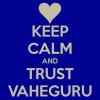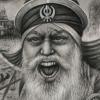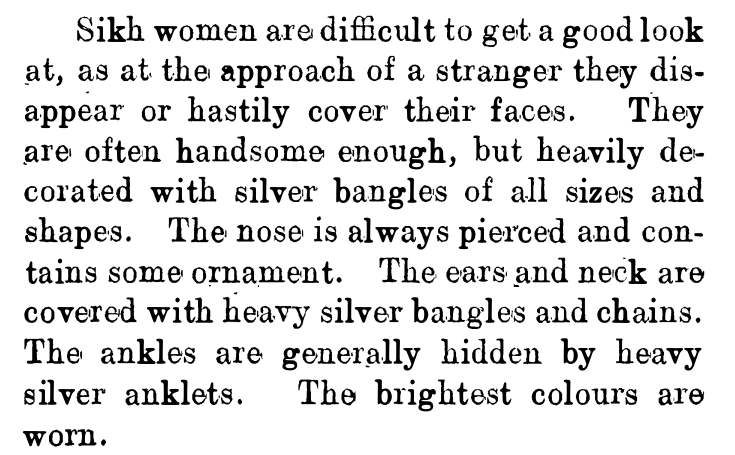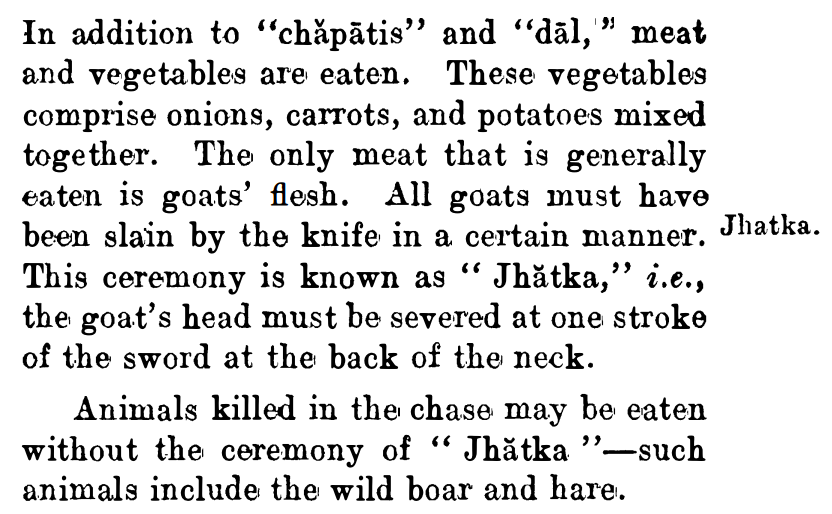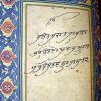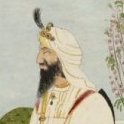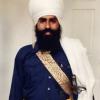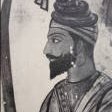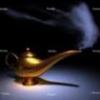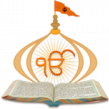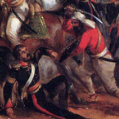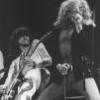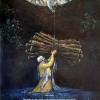Leaderboard
Popular Content
Showing content with the highest reputation on 09/27/2022 in all areas
-
https://www.ndtv.com/world-news/video-sikh-student-with-kirpan-arrested-in-us-university-3375600 Social media users gave a sharp reaction to the manner in which police treated a college-going student. WorldEdited by Nikhil PandeyUpdated: September 25, 2022 12:52 pm IST Kirpan is one of the integral parts of five Sikh Kakars. In a shocking incident that occurred in the United States of America, a Sikh student at the University of North Carolina at Charlotte was arrested on campus for wearing a Kirpan. The incident was first made public when the student uploaded the incident's video on Twitter and said that the police had handcuffed him for refusing to let the officer remove his Kirpan from the miyaan. In the video's caption, he described his suffering: "I wasn't going to post this, but I don't think I will receive any support from @unccharlotte. I was told someone called 911 and reported me, and I got cuffed for "resisting" because I refused to let the officer take my kirpan out of the miyaan. An upset social media user wrote that it was "very unfortunate that you got arrested with no provocation or threats made. Many Americans legally carry small handguns in their holsters, they don't get arrested. I hope the complaint gets dismissed & an apology is issued,". Another user wrote, "This must be looked into and the officer must be reprimanded and trained so that he knows the legality of baptised Sikhs carrying religious items. There have never been any problems with Sikhs carrying these for many years. A person wrote about the significance of having a basic understanding of religion in the multicultural society of America, "Everyone should have basic knowledge Of all religions, including Sikhism and the 5 K's".1 point
-
I don't think this is a matter of religion. The Kirpan is a weapon. I don't think there's anything wrong with having a weapon on a college campus. The fault here lies with whoever called the police and also the police for trying to arrest someone who is otherwise peaceful but just happens to be armed. It's also the fault of North Carolina for not legalizing open carry if it's not already legal. You don't even need to have any license whatsoever to carry a gun in half the states. So what's the problem?1 point
-
There's a berserker lurking quietly in most of us that emerges given enough provocation.1 point
-
1947 is also an example. We were heavily outnumbered by muslims in Punjab but inflicted more damage on them than vice versa. Again it was them who started it. The muslims breed like rabbits but what they don't realise is how much poverty it causes them.1 point
-
The muslims cannot really do much in Leicester so they picked an easy target in Birmingham. And they use what they are good at which is the numbers game. I wish there was a community that breeds at higher rates than the muslims so that when the muslims try to get their numbers that they get out-numbered by another community. As to your post that you mentioned about us Sikhs being outnumbered by mobs from other communities is that although we are quite a docile race, we have a knack of being extremely well organised and disciplined when the time comes and this bodes well when tackling an unruly mob particularly when being outnumbered. It's like some kind of dormant gene that gets activated. You saw how quickly our community galvanised during 2011 riots, how quickly during the Kisaan protests. Like MrrSingh said we are a walking contradiction.1 point
-
From what happened last week it looked like the Hindus started it and the muslims ended up on top with what happened in Birmingham. You're right apne don't really bully minorities, we are racist though. I can't blame the Hindus to some extent when it comes to suls. Their leadership let them down big time allowing huge amounts of suls to stay behind after partition. We've been fortunate to have an almost sul free Punjab, we only know what suls are like due to living next to them in the west. Punjab has the lowest percentage of suls in all of India. Suls like to push the boat to see what they can get away with and when they go too far like they did in Myanmar recently, the majority community finally has enough and retaliate. If they were a community that kept their head down and worked hard no one would hate them but they just try to push their way of life on all of us. They have conflicts with every other religion.1 point
-
One major factor for the Hindus are doing what they are doing in the UK is the political backing. The Hindu political leadership in India is comprised of Gujjus and it is the Gujju diaspora that is spearheads in countries abroad. Even if we had this level of political backing, we Sikhs don't do what these two other communities do. We are wired differently. Even if we were an overwhelming majority, we don't pick on other communities. But for some reason, these two other communities love to use their numbers. But as a neutral observer, it is interesting to see Muslims in the UK on the back foot. The Hindu lobby groups seem to have turned the tables on the Muslim lobby groups. The police and local authorities seem to protect Muslims but they look quite helpless. Muslim lobby groups seem to infiltrate systems from a lower level but the Hindu lobby groups seem to be excercise from a higher level. So it seems to be top-down vs bottom-up.1 point
-
1 point
-
The thing is that Hindus will only give it the large when in a significant majority and as soon as the numbers turn against them they pretty much give up. The only exception I've seen to this is the Tamil Hindus of Sri Lanka. They also have appalling unity, did the Punjabi, Tamil, Nepali Hindus come to help the Gujaratis? Nope. Yet you had Arabs and Somalians helping the Indian muslims and Pakistanis. Sikhs historically have always been a minority in India and even greater Punjab so we are used to fighting when the numbers are against us. Just look at how we retaliated against the muslims of UP who heavily outnumber us when they tried to take our land. Even in Hyderabad Sikhs have fought against Muslims who make up a huge amount of the city.1 point
-
How does it mention the Guru giving the Gurgadhi? Was this wrriten by the Guru after giving the Gurgadhi?1 point
-
https://archive.org/details/LifeOfBandaSinghBahadurBasedOnContemporaryAndOriginalRecordsDr.GandaSingh1 point
-
He was not a guru and I'm pretty sure he wasn't seen as a saint? He was a leader just like the misl leaders and M. Ranjit Singh. They all had flaws but were amazing personalities and leaders. Some people have started calling him baba banda singh bahadur, I don't think he was seen as a baba or sant during his time?1 point
-
The truth about Baba Banda Singh? A flawed human being who never professed to be anything else. He achieved great feats; he succumbed to ego and made some mistakes, but he stood up for Sikhi and fought for our survival at a time when we needed that brand of presence and leadership. He pales in comparison according to the example set by Guru Sahibs, but then that shouldn't be a surprise. This relatively recent trend of trying to "expose" Baba Banda Singh in order to diminish and poo-poo his achievements by magnifying his mistakes is pure propaganda to rob Sikhs of a key historical figure who was the archetypal shade of grey. Don't fall for the devious tricks and turn on one of our greatest personalities.1 point
-
Other than Gupta's unsubstantiated assertion, no other historian has ever categorised him as a Guru "with a large following in Madhya Pradesh." Maybe he was deified by his own small band as one, but there is nothing to imply that he had some "large following."1 point
-
Banda Singh ji was definitely a mahapurakh. There are historical records of Mughals being frightened by his power to cause thunderstorms. The ability to effect the weather in this way is a result of heightened spiritual awareness. And we know that he was already a Guru and commanded quite a following in Madhya Pradesh, prior to meeting Guru Gobind Singh ji. So his followers knew he was enlightened, his enemies knew he was enlightened. We know he was not attached to wealth as he gave all that away after attaining power in North India. We also know that he was from the Bairagi order, an Order of Saints who believe in total detachment from material things and power. Bhagat Ramanand ji and his sikhs, Kabir ji, Ravidas ji, etc are from that Order of Saints. So it would not be a surprise if Guru Gobind Singh ji selected him to lead the Khalsa due to these qualities. His submission and humility during their meeting probably impressed Guru ji as well. It is the same reason why Guru Nanak Dev ji selected Bhai Lehna ji as the next Guru. (Bhai Lehna ji was also a Guru prior to his meeting with Guru ji.) So it is not surprising to me that some groups of Sikhs back then started considering Banda Singh ji as the next Guru, as Banda Singh ji's own following was combined with that of Guru ji. But he was never given the official Gurgaddi by Guruji. So that whole aspect of our history is a bit messy, where some Sikhs considered him a guru and others did not. Their conflict was strong enough to the point where some of them abandoned Banda Singh ji, at a critical point, which then lead to his martyrdom. The story of goat slaughter is probably arising from that tension between the two groups of Sikhs. I personally can't imagine Guru sahib slaughtering goats in a Sadhu's kutiya but God only knows.1 point
-
Banda singh bahadhur being a rajput hindu convert to Sikhi for all his faults and flaws as a ordinary human being was a great warrior hero for the Sikh nation. His and the Khalsa's daring adventures and martyrdom eventually lead the path for sikh misls to establish themselves by more daring hit and run attacks on various anti-sikh authorities and within a few decades Sikhs had come together to establish the Sikh empire along with 5 other Sikh kingdom states. If it wasn't for banda singh bahadhur sirhind and various hostile muslim occupied area's would never have got destroyed the muslim populations would never have got forced to run away, be slain in warfare or forced to convert to sikhi and thus Sikhs would have been finished by playing too politically correct being too nice in the face of extreme persecution and extermination by the enemy. I noticed one thing about hindu converts to Sikhi they tend to be alot more fierce towards Islam and its hostile populations. Whereas Sikhs born into Sikh households tend to be alot more easy going, pluralistic and neutral or balanced when it comes to Islam and dealing with muslims. In times of hostile muslim populations then these type of Sikh converts are very useful but when its times of diplomacy, peace and co-existence they can be a liability as they tend to be still bitter and hateful towards muslims.1 point
-
Ludicrously, Santa Sio Nang stepped over the bodies of the innocent Sikhs slain in Operation Bluestar to build the "sarkari takhat-" he is a hero; Banda Singh created the first Sikh Raaj, he's a villain.1 point
-
Some people do say that Banda Singh Bahadur was wrong, I don't know, should be careful of what we say though! he could of been very close to Waheguru for what we know. Traditionally he is seen as a hero. The Mughals caught him and put him in a cage and paraded him around Delhi and then fed him his own son! that is just horrific! I dont know much about him but he did blow up Sirhind but did not blow up the religious muslim buildings, like the rauza sharif place, which i think is a burial site for indian muslim saints. Well Sikhs splitting up and not sticking together has pretty much been the history of india and indians! in fact the main reason that india has been conquered by invaders for around 1000 years is because Indian society has been so divided. Shudras used to be murdered or converted and the brahmins used to say good riddance, little did the foolish brahmins know that these very shudras would one day convert to a religion which would threaten the very existence of the hindu dharam. The tables turned and the very people that the brahmins used to call shudras now started calling the brahmins kafirs.1 point
-
Why do you think a kirpan is not a shaster? That's like saying a kangha is not a comb.1 point
-
I think kripaan only counts when it's required for law of the land or circumstances, and not really in places where you're allowed to carry more usable shastar such as guns in states or wearing shastar in India.1 point
-
since Guru says a sikh should not present themselves without kesh and shastar, does that make most sikhs fake including many amrit dharis?1 point
-
The annual Bilderberg meeting is going on at Chantilly, Virginia, under heavy police protection. It's a secretive meeting (the public not allowed) of about 150 elite leaders from Europe and America. The point is to promote cross-Atlantic friendship (if you're sympathetic to them) or to plan global governmental structures (if you're skeptical of them). The top takeaway from The Guardian's article is this: Some people think that elites are actually promoting disorder in order to profit. Also: More info here: https://www.google.com/search?q=bilderberg&prmd=ivns&source=univ&tbm=nws https://www.google.com/search?q=bilderberg1 point
-
You're right about that, but that's partially because the CIA made up the term "conspiracy theory" and actively discredited it: http://www.zerohedge.com/news/2015-02-23/1967-he-cia-created-phrase-conspiracy-theorists-and-ways-attack-anyone-who-challenge http://www.alternet.org/civil-liberties/how-cia-invented-and-promoted-conspiracy-theories-discredit-controversial-views Well, they are and they aren't. First, the Guardian is considered a "mainstream" source. Second, some of the attendees were in the open, like Michael O'Leary (RyanAir boss). But others went to ridiculous extremes to avoid being seen: Also, this isn't like TED talks. The meetings are totally closed, and they don't put them up on Youtube afterwards.1 point
-
Most people roll their eyes at the mention of a shadowy elite running things. The stigma of conspiracy theory around the discussion of such groups prevents serious discussions from taking place regarding what exactly these people are doing behind closed doors. I struggle to believe these people are meeting in broad daylight. Either they're shamelessly brazen about their activities, or they're stupid.1 point
-
If you or you know loved ones ill on health it may be ideal to try Swami Ramdev, a well renowned Yoga master (yeah yeah we all know him) in India. The Vilaum nirom (think it's called) is a form of breathing exercise where you close one side of nose, inhale deeply, then press other side of nose and exhale. Then inhale again before exhaling by pressing other side of nose. This should be done for 20 mins before breakfast and again in the evening after 2 - 3 hours gap if eaten anything. Also, food is important! Giving up fizzy drinks and only drink water, fresh home made fruit juices and milk. Instead of crisps/ biscuits go for dried fruits, almonds and kacchi sholay (Dariaa) all can be brought from cash n carry/ Indian shops. Speaking of fruit try consuming at least one different fruit everyday not just apple, banana and all the fruits we tend to find sweet n juicy. IN TWO WEEKS TIME of doing this there will be a massive improvement in health, whatever the ill health may be. (Include depression)! Food affects the brain and how we think, feel all is caused by chemicals signalled from the brain. How are the chemicals created? mainly by food MORE than life situations. NOW am sure some Sikhs may think "But isn't it against Sikhi to do such Yogas?" Simple answer, no. What will an obese person, who must lose weight, do? Meditate on Naam or exercise? which of the 2 will suit them the most? They're ill health, need help am afraid Naam will be shakti for the mind not the body here. So being open minded and taking an advantage of Swami Ji's yoga plus changing the diet should be used.1 point
-
He is a bit of a snake in the grass be careful : https://www.sikh24.com/2012/07/10/baba-ramdev-demonstrates-anti-sikh-feelings-takes-u-turn-on-1984-memorial/#.WQMO4n1tnIU http://www.hindustantimes.com/punjab/now-ramdev-booked-for-hurting-sikh-sentiments/story-Wi7fy3CuFAZcDbb8FcctgN.html http://sikhissues.blogspot.co.uk/2006/08/ramdev-vip-at-gurdwara-soho-road.html http://www.mapsofindia.com/my-india/india/controversial-remarks-by-baba-ramdev DDP yoga (gora exwrestler) or even Kokoro yoga I would consider better as it doesn't come with the hindu kowtowing: veteran's results with DDP just reading up on kokoro yoga , again this is a veteran who used yoga in the battlefield to centre his emotions to become a better warrior , so far so interesting1 point
-
A lot of Sikhs think that practicing yoga will automatically make you into a Hindu, and oppose it for that reason. I generally accept the notion of that if you're doing it just for health reasons, then it can be acceptable. If you say that it's a part of the Hindu religion, then we get into definitions: What is the Hindu religion? When one religion (or religions that have very similar bases) are so extant as what we call Hinduism was in India, then everything you write, whether it's on mathematics, astronomy, war, or body postures/exercise becomes a "Hindu text". I think, though, that it could be said yoga exists on the outer edge of what we could call religion. It's sort of like gatka. In one sense, you could just say it's a martial art, not part of the Sikh religion per se. But you get into definitions again, what is Sikhism? Even though it (gatka) can be said to be not inherently Sikh (you could just call it Indian self-defense), in practice it often functions as a mode of preaching and extending Sikhism. Interestingly, I spoke with a gatka master, and he said that Sikh boys who started attending gatka class have begun to keep their hair and many/most akhara members have now taken Amrit. Similarly, if you're just doing body postures/exercises, that's one thing. But if you also start to do Hindu mantras and start bowing to the sun, that would be a problem. Finally, I am fortunate enough not to have been in such a bad way as to have required yoga or anything. As such, it's a bit hard for me to condemn people whose bodies might be hurting for whatever reason and are doing yoga to alleviate it (back pain, etc.).1 point
-
Ok but it's FREE advise he gave the world. Am sure you have more knowledge like newspaper article / interviews to call him Modhi's pet. I kno NOTHING about India politics.1 point
-
wouldn't take advise on health from that diseased mind ...mr Ramdev is modi's pet , take up jumprope, weighttraining, gatka, MMA, anything1 point
-
As Sikhs how should we judge the Royal family? Is it an institution we should be proud of? Afterall if we look at the history. The queen was the head of state of India. not the queen but probably the queen before her.1 point
-
Rehndi praava. Zaroor beccahre nu, tundi burj wich barna. Becharra chooa dekh ki mar jao.1 point
-
It states in Rehat that one should not gossip about others. It's interesting how much people spread rumours especially about Prophet Muhammed. Sometimes it's "He murdered the true prophet," or "He was indecent towards children" or "He got his ways by lying, murdering and cheating..." QUESTION! Were YOU present to witness all this? Is this written in the Quran or any other trustworthy historical scriptures? If yes PLEASE CORRECT ME IF AM WRONG! If not then, like all slanders, this too is heresay NO evidence. Many people laugh and quickly take this to be the truth! Just because they heard it/ hear what they wish to hear and believe it. Unfortunately I too have fallen prey to the whims of Nindia! "Sikhs" told me so much bull about other Sikhs that I believed it because, at the time, it seemed true. Today I realise it was 100% false accusations. When someone tells us something we think "Can that be true? How did they know? How on Earth can they figure it out?" But when it comes to nindia, we stop right in questioning and believe it! (If you question Nindia/ talk behind backs, congrats). NOW! How long was Muhammed? More than 1000 years ago? Ok, let's take a look at another nindia that's being done by so many people out there, that so many Giaani Ji's/ kathas and books talk about that they to correct a wrong. The accusations are as follows; "Guru Gobind Singh Never cut any 5 human heads. They were heads of sheeps." On hearing that how do you feel? here's more that I read AND heard on radio discussion "Guru Gobind Singh committed suicide by jumping in a well on hearing the "death" of his 2 young sons and mother." HOW DO YOU FEEL!? DREADFUL? HOW DO YOU SUPPOSE MUSLIMS FEEL WHEN THEY HEAR ABOUT MUHAMMED IN A NEGATIVE LIGHT!? Yes am writing this here because I have heard it from Sikh individuals. Finally, if overtime Muhammed's been ridiculed in so many ways (more than 1000 years onwards), where do you suppose the stories of Dussa Paasha, Guru Gobind Singh would be? How many more lies and negativity be added to his name? How many people will hear accusations and nindia against our Guru Sahibs? IT'S ONLY BEEN 300 PLUS YEARS SINCE THE TIME OF KHALSA! WHAT WILL HAPPEN IN THE NEXT 700 YEARS? If we hate these accusations, hurt our feelings I fail to see why we do the same to others. Okay folks am off be sure to comment, correct my mistakes and feel free to prove me wrong. Bhul chuck maaf.1 point
-
Thanks! So much effort I shall save it n take full advantage.1 point
-
Depends on how good a Queen she's been for the UK. Sikhs in UK, political matters and all that, has been decided by Government. Does she ever get involved/ a say? IDK. FTR I wouldn't say "Proud."1 point
-
Let's not delude ourselves. Our lot would win that competition hands down...... Hell even your average male bhangra dancer's attire would make the queen's outfits look subdued and sombre.1 point
-
do NOT say Britisher it makes you sounds like an unpard , which you are not english grammar rules people from Britain or things from Britain are called British like scotland has Scottish, Wales has Welsh , Ireland has Irish.. The race is referred to as The British . As for Muslim immigrants from Pakistan and Bangladesh they are making up filthy myths about our faith, history and people just to get under our skins and get stupid unpard youth to fight their <Edited> fights ....Response is to be aware, bust the myths in public forums and get ready to give answer physically if necessary. so W4h4b1 is a banned word?1 point
-
ok, you CANNOT talk to her unless she talks to you first, you cannot ask her questions, you cannot eat/drink/sit before her , if she gets up from the table /goes from the room that is it , you are dismissed. SHe may be a worldly queen , but ultimately she is a human and has all the faults we all have, I could never respect Prince Charles because of his behaviour which this Queen knew about and condoned , what mother does that ? They are not fit to rule according to gurmat/dharmic thought i.e. leading by good example being Godly, just, etc She is a masthead who is content to hoard treasures stolen and presented over the generations, whilst never striving to speak up for her poor subjects ..1 point
-
Not true the soldiers/navy salute her , the women curtsey not bow ...don't generalise, Sant Attar SIngh ji never bowed when her ancestor came to India in fact he quoted Gurbani which pointed out the temporariness of their power. I think he is the example for us all1 point
-
1 point
-
Don't kid yourself. We have plenty of doe-eyed, ar5e-lickers of royalty amongst our quom.1 point
-
I have never seen a singh bowing to the queen ....not her guards , maybe sometime an award receiver may have ... She will get a fateh from me and like it . I have only one King Guru Granth / Guru Panth , Akal Purakh no one else1 point
-
She is the head of state and we should respect her as she is our queen and we are her subjects. You should bow your head if ever you were to have the pleasure of meeting her.1 point
-
Banda Singh, kudos to him form performing these acts, also did much better than he is credited for today. His revolution, if analyzed properly, speaks volumes to the concept of Khalsa-Raaj and Sikh politics. Look at how his revolution differed from that of the otherwise obdurate Rajputs and Marathas: 'In an ironic twist of faith the Marathas and the Rajputs, who are lauded as the cream of the sub-continent’s military crop by Hindu nationalists, were more or less in cohorts with the Mughals. ‘Only very rarely do we hear of Hindu chieftains seeking to protect Hindus… Rajput chieftains offered no opposition even to temple demolitions by the Mughals…’ (14) The Rajputs were handicapped by three main factors viz. a lack of natural resources (they were mostly desert dwellers) (15), a parochial tendency to concentrate solely upon feudal and dynastic interests (16) and finally their own pecking order. (17) In the aftermath of the Mughal conquest of the sub-continent, the Rajputs were the first to fragment socio-political taboos by offering their females in marriage to Muslim males. (18) At a time when most Hindus despised even the notion of Muslims touching their food, the Rajputs expected their daughters to warm the beds of their Mughal overlords. The main pillars of Mughal administration and security, it is somewhat telling that out Akbar’s 416 military commanders 47 of the most prominent were Rajputs. (19) Whilst Maharana Pratap’s revolt was ongoing, the Rajputs of Marwar, Ambar, Bikaner and Bundi marched against him and played a decisive role in crushing his forces. (20) Their own obdurate interests often collided with any national sentiments they might have possessed and overruled the latter. It is no wonder then that the Rajputs, as a whole, failed to initiate and lead any long-lasting revolution to oust or even break the Mughal grip upon the sub-continent.' 'The Marathas, though distinctive in their political acts, were more or less similar to the Rajputs in that that prior to Shivaji they were proud sub-ordinates of the Muslim oppressors. Shivaji’s own father had allied himself with the Southern Pathans during the Karnataka expedition, ‘in which the Hindu religion was ruthlessly put down, lands devastated, shrines desecrated, idols broken, women’s honor violated, and all the accumulated wealth of centuries drained away…’ (21) Though great credit goes to Shivaji for arousing his fellows’ sentiments to counter the pernicious foreigners and their faith, his movement when compared with Banda Singh’s movement falls short in three respects.' '1.) The Sikhs rejected Caste and proposed the creation of an egalitarian society. This was an aspect of Banda’s multi-faceted revolution in the Punjab and one which admirably succeeded. In the words of Irvine, ‘a low scavenger or leather dresser, the lowest of the low in Indian estimation, had only to leave home and join the Guru (referring to Banda; interjection ours), when in a short time he would return to his birthplace as its ruler with his order of appointment in his hand. As soon as he set foot with the boundaries, the well-born and wealthy went out to greet him and escort him home. Arrived there, they stood with joined palms, awaiting his orders… Not a soul dared to disobey an order, and men who had often risked themselves in battlefields became so cowed down that they were afraid even to remonstrate. Hindus who had not joined the sect were not exempt from this.’ (22) Compare this with Shivaji who according to Basham was, ‘more a restorer of old than… a builder of the new… The Marathas did not encourage reforms in Hindu society, and the India of the 18th century was if anything more conservative than it had been in the days of the first Muslim invasion.’ (23) Basham’s view is borne out by Shivaji’s own personal correspondence. Whereas Akali Guru Gobind Singh Ji enjoined his Sikhs- among them Banda- to annihilate the very edifices of Caste (24) Shivaji issued a circular edict enjoining, ‘all members of society not to create innovation in Caste practices but follow the traditional path prescribed by the Shastras.’ (25) Furthermore he being a Bhonsle (a tiller of land), Shivaji had to beg ratification from the Brahmins before he could officially declare himself as sovereign. Several Brahmins refused to accede to what they considered as being his ludicrous request before he finally found one willing to enthrone him for a large sum of money. (26)' '2.) Shivaji’s revolt against the Mughals arose more by chance than by design. Whereas the Sikh movement (including Banda’s) was construed to acquire an autonomous Sikh led state, Shivaji initially wanted to be a vassal of the Mughal emperor. His (Shivaji’s father) had been a mercenary in the pay of the triumvirate Pathan principalities of Southern India. (27) Enamoured of his valor, the rulers of these principalities had bequeathed him with several estates. Upon his father’s demise Shivaji succeeded him as the administrator of the aforementioned estates and commenced entertaining notions of his own state. To this end he set out for Delhi and submitted a proposal stating that he, Shivaji, would be more than honored to become a vassal of the Mughals if they recognized his autonomy. (28) Even after his treacherous confinement he would pen a lengthy letter to Raja Jay Singh pledging his life to the Mughals and also swearing an oath to assist them in the conquest of Bijapur. (29) After his escape he would dispatch another lengthy letter to Jay Singh complaining that, ‘the Emperor has cast me off; otherwise I intended to have begged him to allow me to recover Kandhar for him with my own unaided resources.’ (30)' '3.) The ideological evolution of the Sikhs was finalized under Akali Guru Gobind Singh Ji who also outlined the faith’s political dimensions to a great extent. (31) ‘The great Sikh scholar Kapur Singh was convinced that Guru Gobind Singh believed in an aristocracy dedicated and consciously trained-but not by right of birth- and which is grounded in virtue and talent…’ (32) Whatever territories Banda and the Sikhs acquired, they handed them over to be administered by the most competent among them irregardless of birth and societal position. The latter proved to be a momentous decision as men who had been oppressed for centuries by the orthodoxy and the cudgel soon rose to political prominence, and changed the lot of their charges. Though seen by some as being the sole leader of the Sikhs, Banda was only an elected candidate. He was subject to the will of a Gurmatta, a general resolution of the Sikh assembly, and often consulted his fellows before charting his courses of action. (33) Respected for his military prowess and leadership, he was in no way a pontificate among the Sikhs who he led. He was more subject to their will than they were to his. This principle of leaders being led by their electors was later noted by Colonel Polier, ‘as for the government of the Sicques (sic), it is properly an aristocracy, in which no pre-eminence is allowed except that which power and force naturally gives; all the chiefs, great and small, and even the poorest and most abject Sicques look themselves as perfectly equal in all the public concerns and in the greatest Council or Goormata of the nation, held annually at Ambarsar (Amritsar), Lahore, or some other place. Everything is decided by the plurality of votes taken indifferently from all who choose to be present at it.’ (34) Though during the post-Ranjit Singh era his successors ignored this vital principle and committed fratricide over the right to rule the Sikh empire; the real power vis-a-vis administration and policy lay with the Khalsa army Panchyats or councils of five who represented the people. (35) Rarely did Shivaji ever consult his people on pressing matters and rarely did they possess a voice to make their concerns known to the Maratha. The Maratha forces at the time of his death were also heavily fractured and elected to be led blindly by the noose by whichever potential successor pandered to them. (36) Given such circumstances and situations, it can safely be summarized that Banda Singh’s revolution- though short lived- was more successful than that of his contemporaries. It aimed to conceive and utilize a plebeian (for a better want of word) base via which to liberate the victims of Caste and Islamic oppression. It aimed to make the proletariat the arbitrator of his own political destiny, and finally it reformed the otherwise dismal social circumstance of the Punjabi peasantry. Landowners and estate administrators, who formed a crucial component of both Mughal and Hindu administration, were effaced by Banda and land proprietorship bequeathed to the peasants who literally tilled the land. (37) Farmers who often suffered under the ‘whip and cudgel’ (38) finally enjoyed the fruits of their labor under Banda. No such reforms were forthcoming from either the Maratha or Rajput revolts.'1 point
-
All revolutions tend to be violent. Without force, all movements are ultimately deadened. The Punjabi peasants, irrespective of Caste and Creed, rose up as one under Banda's dynamism to confront their oppressors who were notorious for many misdeeds. A few portions from the article, in question, should substantiate this: 'The peasant, since time immemorial, has been one of the pontificate societal blocs of the sub-continent. The onset of the Aryan invasion, and the societal evolution which followed, reduced him to the status of a pariah in the Varna (Caste) scheme of things. (2) The raison d’ etre behind this was that the tillers of land perpetually killed insects and as such were unworthy of pursuing Moksha or liberation from worldly affairs. (3) Caste segregation however did not conclude there. It’s promulgators alleged, on a scriptural basis, that the peasant was a pariah owing to his past Karma; thus then there was no recourse left for the peasant but to accept his lot in life silently. His suffering was perniciously impugned on his own self by his betters and he was indoctrinated into believing that only he was responsible for his own oppression.' 'The context in which Banda ignited his revolution can only be understood if one was to analyze the condition of the peasantry under the Mughal Polity. The Prophet Muhammad had decreed to his apostles, before his demise, to conquer lands far and wide and spread Islam at all costs even if this meant resorting to the razor edge of the sword. (4) The fervor and passion with which his apostles executed this edict is a lurid tale of genocides, massacres and purges which have earned a notorious residence in history. The indifference with which the upper Castes persecuted their sub-ordinate brethren was the same indifference with which the invading Muslims oppressed both them and their victims. The Rulers of Islam, dependent as they were upon an ultra-orthodox clergy to ratify them, soon realized that the Prophet’s command clashed with a ground reality. In the words of Eraly, ‘…as the Arab empire expanded into the lands of other established religions, it became impossible to enforce the death-or-Islam rule, as infidels in new territories were too firm in their own faith to accept Islam, and too numerous to be killed. Moreover the subject people were needed to do the productive work which Muslims, as the ruling class, usually shirked.’' 'Placating the Islamic Ulama required the conversion of dar-ul-harb-the land of infidels- into the dar-ul-Islam or the land of Muslims. (6) Given the aforementioned factors though, this was a colossal implausibility. The Mughal elite however avoided any clerical repercussions by utilizing a loophole in this principle. They imposed a transitional arrangement upon their infidel subjects which stipulated that, ‘their lives were spared only provisionally; they were permitted to live only on sufferance. And as long as they remained infidels, they had to suffer numerous humiliating disabilities…’ (6) Owing to Caste, the fractured state of sub-continental society did not allow any prolonged resistance towards the Islamic rulers. Ephemeral revolts such as Maharana Pratap’s were ultimately crushed by individuals belonging to his own community whilst the Mughals interfered only occasionally.' Muslims, read Islam-Sikhism; the Da'wah group etc, who tend to argue that Muslims only destroyed non-Muslim places of worship for political reasons: 'Muslim apologists contend that under Islamic rule such acts were only ever ordered for political purposes (9) but the destruction of a religious place of worship , even for political purposes, does not signify respect for another faith. Rather, it only exposes the ruling race/faith’s prejudice towards a subject people. The cause, and level, of intolerance may vary but the antipathy cannot be ignored.' 'Contemporary records, of the time, substantiate the almost sub-human existence of the peasant. Moreland notes that, ‘the peasant is the last person to benefit by a rise in price, while he is the first to suffer from a fall…’ (10) A marked difference existed between both Muslims and Hindus even in matters of employment and occupation. Muslims, as the ruling class, shirked what they perceived as being menial tasks. These were often thrown upon the Hindus who whilst performing them had to undergo numerous humiliations. Among them the prime sufferers were usually the artisan or the peasant. ‘The tyranny is often so excessive as to deprive the peasant and artisan of the necessities of life, and leave them to die of misery and exhaustion…’ (11) During Aurangzeb’s reign Bernier noted that, ‘a considerable portion of the good land remains untilled from want of labourers, many of whom perish in consequence of the bad treatment they experience from the governor…’ (12) The Dutch trader Pelsaert would contrast the grandeur of Muslim life with that of the Hindu’s when he would remark that, ‘in the palaces of these lords dwells all the wealth there is, wealth which glitters indeed, but is… wrung from the sweat of the poor… resting on no firm foundation… (though) resplendent in the eyes of the world.’' Given such brutalities is it any wonder then that Sullahs were dragged out of their beds and slaughtered in the same way as their Prophet once slaughtered those who refused to believe in his cult?1 point
-
How sad that on a thread regarding Banda Singh Ji within two posts all the negative/incorrect aspects of Banda Ji are brought up again. Banda Singh was a TRUE son of Guru Gobind Singh Ji , it is said that Guru Ji was about to give Banda Singh Ji His own siri sahib but the likes of Binod Singh grabbed the siri sahib saying this belongs to the Khalsa panth. It was the will of the Guru to give Banda Singh Ji His siri-sahib how sad that the Sikhs opposed their own Guru. The Sikhs would say "Khalsa dhi fateh", Baba Banda Singh Ji would say "Guru dhi fetah". There is rubbish that has been written about Banda Singh Ji I do not believe a word of it. Do you have any idea how oppressive the musallay were at the time? Wedding used to take place in the middle of the night because if the mohgals got wind of it they would come and take off with the bride, anywhere they was a sadhu they would behead, this disease needed to be cut out. All his life he had waited for Guru Gobind Singh Ji and Guru Ji specifically went looking for him, finding him near Nanded. Baba Banda Singh Ji was a Mahan Mahapursh and a Mahan yodha the likes of which we may never see again. Forget any negativity and Rememeber him as a true mahapursh in your adrass's in the morning and you will get great blessings from your Guru.1 point
-
There's a bit of a tendency amongst apnaay these days to make the puraatan Sikhs into something they weren't. It's essentially a legacy of the British colonization of the Punjab and the Sikh pysche - hence the transplanting of Western knightly/chivalric virtues onto the characters in our itihaas. This fiction was conducive to the Brits' agenda for the Sikhs as a source of potential recruits. The true story of early Sikh history, with its cast of half-naked unruly horsemen ransacking settlements and burning everything else to the ground, was not the recipe for producing the docile and obedient European-style line infantry [paid in wages and discouraged from looting] that they required - so they tried to get rid of it. *Also the very popular idea that 'Sikhs have never attacked first'. [As if to suggest that there is anything wrong with attacking your enemies before they can lash out at you. There isn't] In reality Sikhs have attacked first, it happened all the time in the confederacy era. This seems to me like another Angrezi myth calculated to keep their Sikh ghulaams from rising up and rebelling/attacking first.1 point
-
Banda Singh is an important element of Sikh history. Just as Nawab Kapur Singh was reduced to the margins long ago, so too is Banda now being pushed out. The lives of these men are worth learning from.1 point
-
He was alpha as anything. A proper "Banda." Liberal Sikhs want to downplay or even write him out of Sikh history because of his aversion for Islam, and the way he went about giving those animals a bloody nose. He perhaps went too far, and like a genuine man, he was all too willing to accept his mistakes, and the following quote of his prior to his execution - in a conversation with a Mughal higher-up - proves he understood the nature of God more than most so-called men of God: "Whenever men become so corrupt and wicked as to relinquish the path of equity and abandon themselves to all kinds of excesses, then Providence never fails to raise up a scourge like me to chastise a race so depraved; but when the measure of punishment is full then he raises up men like you to bring him to punishment."1 point
-
The Battle of Chamkaur Dohra Through Satiguru’s grace, I can relate this great battle, As per my capability, I describe the great deeds of the[se] warriors. 1|470| When [the Guru] was standing on the hillock, The Raja and Turks moved closer in their pursuit. 2|471| Uday Singh284 pleased Kartar by offering to challenge the enemy, That life is successful which is spent battling against enemies.3|472| Leaving behind Uday Singh, the Guru moved ahead, Stopping at a garden near Chamkaur, they rested. 4|473| Receiving this news, the local chief of Chamkaur, Rushed there immediately. 5|474| With folded hands he requested Kartar, ‘Please come to the center of the village.’ 6|475| On horseback, then Sahib left the garden, The Singhs all accompanied him and arrived in Chamkaur. 7|476| Then the enemies received the news [ through their spies], That the Singhs had arrived in Chamkaur.8|477| These foolish spies spread this news everywhere, Uday Singh stayed behind, now listen with care. 9|478| The Rajas and Turks arrived nearby, Uday Singh fell upon them without delay. 10|479| 284 Son of Mani Singh and warrior in the Guru’s army.240 Jhulna Savaiya When he rushed onto the battlefield, he killed many cavalrymen, Corpses fell down as if a dyer had spread clothes on the ground for drying, Reddened by blood as if dye had been applied, It was as if a current of wind descended and uprooted strong trees. 11|480| Dohra For three hours he kept the enemy at bay, Then Uday Singh died fighting, remembering Satiguru. 12|481| Savaiyya Accompanied by many Singhs armed with weapons they fought with great force, Some armed with swords, some handling spears, shouting battle cries they rushed forward, Someone stretching his bow, unleashed his mortal arrows with precision, Killing so many men as if building a mountain of corpses, the Singhs fought. 13|482| Dohra Fighting for three hours, the Singhs killed many there, While fighting all of these warriors kept Satiguru in their mind. 14|483| Then seeing them fall, the army was surprised, They looked for Karan Karan all around. 15|484| In the meantime many spies came from Chamkaur, Everyone prepared for the battle and arrived there. 16|485| Establishing their trenches as soon as they arrived, Right there, the war started with the roar of a gun. 17|486| Surrounded on four sides by those forces, in the middle stood Gobind Singh,241 Shining like the moon surrounded by stars. 18|487| All of the armies arrived, standing there, Surrounded on four sides with no escape route. 19|488| Savaiyya Like dense clouds gathering in the directions, the warriors of these armies arrived, Chamkaur was completely surrounded, no road was passable, Seeing the swarming armies on four sides, the Singhs rose to fight, Then with a mind focused on Satiguru, the the Sikh soldiers fought happily.20|489| Everyone said that the warriors of Guru Gobind have gathered, Holding their weapons these great warriors descended upon the field, Coming together with pleasure, there was no occasion for fear, They were confident that Prabhu would take care of them and they fought bravely. 21|490| Roaring the Singhs rushed forward onto the field displaying their weapons, Some armed with swords, the jamdhar, spears, guns, and others unleashing arrows, Warriors brandishing these five weapons, felled many warriors in battle, There was great fear at that time as the Singhs appeared as the form of death itself. 22|491| Chaupai Descending upon these armies, All of the Singhs did thus. These sounds of steel resounded, Quickly the melody of battle sounded. 23|492| Falling to the earth with a great thud,242 Many warriors died fighting there. One wounded fell down delirious, Others died an instanteous death. 24|493| One ran away never to return, Other warriors fought face to face. In this way the Singhs fought unexcelled, As if intoxicated, they fought with abandon. 25|494| Felled by bullets, Their clothes and limbs reddened by blood. In four directions, their swords shone, Unleashing arrows, unassailable in battle.26|495| There felled by bullets that passed through the body, As if a great rain poured down. All of the Singhs fought together, The Khalsa continuously reciting [God’s name].27|496| Dohra Then, Karan Karan called over one Singh [Ajit Singh],285 He told him to dispatch the enemies. 28|497| With folded hands, he requested, ‘O Kartar, do me this favor,’ ‘Please watch me fight in this mighty battle.’29|498| Savaiyya Acceding to this request, he sent Ranjit to destroy those enemies, Pleasing Gurudev at that time, he went into battle surveying the forces around him, 285 Guru Gobind Singh’s son, he is referred to as Ranjit, Ajit, and Jit in this text.243 With a loud battle cry, the army saw him arrive, Then the Turks encircled him and fought a mighty battle. 30|499| Chhapai Chhand That day when Ranjit stood like a pillar in the earth and fought, The earth shook and the sun was eclipsed, The wind stopped and night turned into day, The heavens trembled with the sound of those cannons, The sound of drums filled the three worlds and filled the minds of the gods, Alighting upon their conveyances, they all came, including Shiva, to see this battle. 31|500| Dohra Then a yogini came and Narad’s trumpet resounded, Jit Singh returned to the battlefield. 32|501| Seeing the army in four directions, he grabbed his bow, Unleashing arrows like the falling rain during Savan. 33|502| Whoever was touched by his arrow died, Felled by the sword, many Pathans fell. 34|503| Chhapai Chhand Holding his bow mightily, Whoever he hit in the chest, that arrow pierced their armor, Felled in this way, they maintained their honor, Forgetting their worldly concerns, they lost all sense, In this way, Jit Singh killed many Pathans, Leaving aside his bow, he fought with many other weapons. 35|504|244 Dohra Rushing at the army, Felling those on horseback in a moment. 36|505| Savaiyya When Ranjit went into battle he fought with such unexcelled skill, Corpse fell upon corpse, and blood flowed as if out of a pipe, Holding a spear with great vigor, immediately killing everyone at that place, Lifting these weapons with such strength, many fell to the earth. 37|506| Dohra Witnessing the death of these Pathans in battle, Seeing this everyone recited ‘Khuda Khuda.’286 38|507| Savaiyya Seeing Ranjit fighting in this way, the armies cried, ‘Vah Vah,’287 Ranjit Singh killed many enemies with his spear, lining the edge of the field with corpses, Flowing like a endless river of blood in the field, His horse turned around with great agility, with a shield in his hand he killed many. 39|508| Dohra Jit Singh fighting in all four directions, Leaving aside his bow, he grabbed his spear. 40|509| 286 Khuda is a common epithet for God used in the Islamic tradition. 287 ‘Great, Great.’245 Savaiyya When his spear fell upon the earth broken into two pieces, he killed many with his sword, Severing many heads into two and four pieces, All flowing in a river of blood, Felled with no trace of sense or consciousness, everyone was senseless in the field. 41|510| Dohra There was great fighting at the village near Chamkaur, Fighting they held their positions. 42|511| In his way, Ranjit Singh fought well, Those great warriors fought in this way. 43|512| Savaiyya Fighting with resolve, Ranjit destroyed the leaders of the armies, Brandishing a sword and attacking, bodies fell upon the ground, Like a river of blood flowing with corpses lining its edge, Treading the field with their horses, they fought with great strength. 44|513| Dohra The brave warrior fought in battle with his sword, He killed these great warriors, the leaders of their armies. 45|514| Dohra Then the armies gathering together closed in from the four directions, Ready for battle they approached. 46|515|246 Savaiyya Then seeing them there he seemed was prepared as if ready to play Holi, With the clashing of spears, swords, arrows, and guns, blood flowed freely, Everything glistening as if colored by red powder, As if a garden full of red flowers finally comes to bloom. 47|516| Dohra Their bodies completely covered in blood, Sprinkled in color as if it was the season of spring. 48|517| Savaiyya A yogini arrived and waited there with her bowl, eager for Ranjit’s blood., Apart from you who fought such a battle, who could satiate her appetite? Vultures circling and Narad danced, there an incalculable number of warriors had fallen, There was heavy fighting in the middle of Chamkaur. 49|518| Dohra Hit upon horseback, that mighty warrior engaged in this excellent work, Drinking from the cup of love288, he became one with God. 50|519| At that time Gobind Singh said, ‘Ranjit has achieved the special status of the Khalsa in Satiguru’s darbar.’ 51|520| Savaiyya As if enacting the ras of Hari ji in the forest, there they all stood on the battlefield. With the sound of drums creating a melody, 288 “pyala prem ka.”247 Together, the warriors played the games of spring and danced in the ras, Spreading out a carefree bed made of blood, these warriors fell down into a deep slumber. 52|521| Dohra At that time their hearts were fixated on his lotus feet, Reciting Vahiguru, they faced their final moments.53|522| Savaiyya Though [these things] appeared on the surface, no one can fathom the extent of Prabhu’s ways, They died or disappeared in some direction, no one knows where, No one could count how many corpses had fallen there, Even meditating upon this without end, they still wouldn’t be able to understand anything. 54|523| Dohra Then when Jujhar Singh289 saw that the time had come, He rushed forward into battle holding his bow. 55|524| Savaiyya He, the strong warrior, rushed the army unleashing his arrows, Those who were hit in battle fell down in great pain, Corpses plied upon corpses, a yogini came to fill her bowl, Fighting in this way the battlefield became reddened.56|525| 289 Guru Gobind Singh’s son.248 Chhapai Chhand Holding the bow and unleasing arrows, Whoever’s heart it pierced died without delay, Those on horseback were felled, Whoever was hit by an arrow died on the spot, Killing so many Pathans, the four directions were filled with corpses, It is not possible to account for all of those killed by Jujhar [singh]. 57|526| Dohra Seeing the army approaching from all four directions, Then grabbing a lance without delay. 58|527| Kabitt He circled his hand with a lance, Heads were strung upon it as flowers in a garland. Woven in a garland exuding the fragrance of sandalwood, Diffusing with every pulsation of wind. Touching them [heads], weaving them, Causing them to fall [off of their bodies]. The unending flow of blood was overwhelming, In which those dead bodies drowned.59|528| Savaiyya That warrior fought in that way and killed so many, Seeing him, many horseriders were scared and fell off their horses, Calling out with battle cries, everyone fired their arrows and guns, Grabbing his sword, the Singh ran into battle.60|529| Fighting in the field, nobody could face this warrior,249 With sword in hand, attacking and cutting the enemy into two pieces, Corpses plied upon corpses, a current of bloody wind was blowing, Killing them by sword, Jujhar Singhs fought in such a way that the trumpets were sounded. 61|530| Savaiyya He rushed into the army with sword in hand as if he was greeting those warriors, Those who carried swords in their hands, lost their heads by his hand, While battling, many warriors closed in on him, Seeing this, Jujhar Singh pondered over what he could do with the help of Prabhu.62|531| Then Zoraver Singh290 came to the battlefield, Killing many in the army, splitting them into pieces, Moving from here to there, in the center of everything without fear, Fighting with those warriors with spears, lances, arrows, and swords. 63|532| Kabitt Pulling on their swords, he made them fall on the ground, Those riders fell with a thud to the ground in front of him. Falling unconsciously and helplessly, Like pigeons in front of a hawk. He killed those riders with his sword, As the leaves fall in the face of a storm. There is no way to fathom his actions, Zoraver Singh killed many warriors. 64|533| 290 Guru Gobind Singh’s son.250 Dohra They left to confront the army, Intervening on Zoraver’s behalf, Prabhu asked Kartar to protect him.65|536| Then Sant Singh291 seized his sword, Running toward the army he didn’t return.66|535| Kabitt Challenging from such close quarters, Killing these soldiers, felling them in battle. The Singhs fighting with sharpened swords, Shining like flashes of lightning. Arrows raining down, pricking the body, Like the hair on the body. The fighting was unyielding, [These men fighting] as if flowers swinging in a garden.67|536| Savaiyya Fighting with fervor in the battlefield, Holding swords on horseback and felling those enemies to the ground, Alighted upon their horses decorated with glorious saddles, killing many enemies, Many injured on the battlefield with blood flowing from their bodies. 68|537| Dohra Reciting ‘Khalsa Khalsa’ there was no reliance upon another, Reciting ‘Vahiguru’ Sant Singh gave up his life. 69|538| So many warriors fought there, such peerless warriors, Grabbing their bows upon horseback. 70|539| 291 Warrior in the Guru’s army.251 Savaiyya Grabbing their bows and arrows, preparing the army they rushed forward, Unleashing lethal arrows without delay, sounding a melody, At that time Prabhu peformed a miracle when an enemy attacked him, Due to Prabhu’s intervention, the arrow flew past at a finger’s distance.71|540| Dohra Prabhu created a plan to go in some other direction, But no one saw Prabhu leaving. 72|541| Savaiyya Whatever armies remained they gathered and rushed toward Chamkaur, The sahibzadas were captured and brought to Sirhind, Jujhar Singh responded to the Turks sharply and annoyed them, Then, due to Prabhu’s grace, both of the sahibzadas departed for their heavenly abode.73|542| Dohra Blessed are the sons of Gurudev who showed no attachment to their bodies, They protected dharam in the Kaliyug, giving pride to their grandfather [Guru Tegh Bahadur].74|543| Fateh Singh and Jujhar Singh gave their lives, The three worlds knew of their sacrifice. 75|544| Thus concludes the account in Sri Gursobha of the Battle of Chamkaur1 point
-
Bhai Sahib Bhai Pinderpal SIngh ji saka Chamkaur eleven parts - so good1 point


